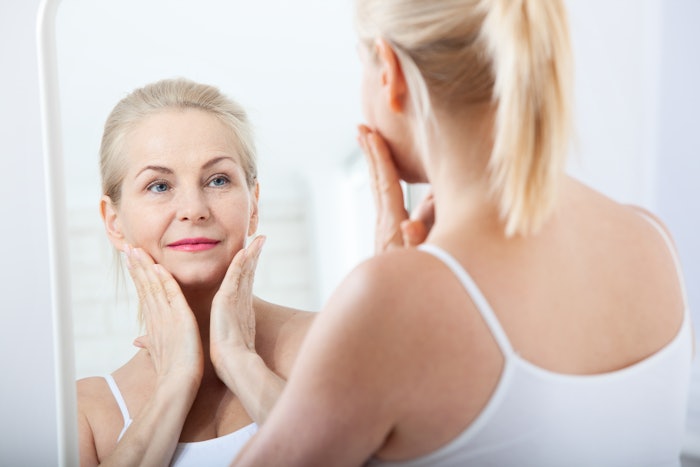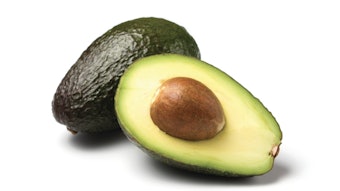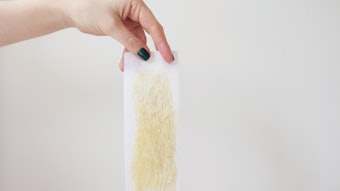
Collagen is the structural backbone of youthful skin, providing firmness, elasticity and resilience. By the mid-twenties, its natural production begins to slow by roughly 1% each year. For some, this decline begins sooner, leading to fine lines, reduced tone and dullness. While collagen loss is unavoidable, it can be prevented by addressing the most common underlying causes.
Ultraviolet (UV) Exposure
One of the leading causes of collagen damage is UV exposure. UV radiation damages skin by deeply penetrating into the dermis, activating enzymes known as matrix metalloproteinases, which dismantle collagen fibers through a process called photoaging. Photoaging is responsible for nearly 80% of visible facial aging [1]. Daily application of broad-spectrum sunscreen with an SPF of 30+ is nonnegotiable, regardless of the season or weather. For outdoors, reapplication every two hours is essential, and formulas containing antioxidants such as vitamin C or E offer enhanced protection by neutralizing free radicals generated by UV exposure.
Smoking and Collagen Breakdown
Smoking remains one of the fastest routes to collagen destruction. Chemicals in tobacco smoke generate free radicals that directly damage collagen and elastin, which cause thinner skin, deeper wrinkles and diminished elasticity. Avoiding secondhand smoke is equally important, as passive exposure triggers the same oxidative stress. Research consistently shows that smokers exhibit earlier and more severe signs of aging than nonsmokers of the same age [2]. However, circulation and repair begin after smoking stops, including exposure to secondhand smoke.
Sugar and the Process of Glycation
Diet exerts a profound influence on collagen health. High sugar intake drives glycation, a process in which sugar molecules bind to proteins, forming advanced glycation end products, resulting in stiffening and weakening collagen fibers, making the skin less supple [3]. Reducing intake of refined sugars and processed carbohydrates, and adding antioxidant-rich foods such as berries, leafy greens and green tea helps neutralize the oxidative stress that accelerates glycation. Nutrients like alpha-lipoic acid and carnosine have shown promise in limiting the formation of these damaging compounds when used consistently.
Sleep, Stress and Cortisol
Chronic sleep deprivation and sustained psychological stress are associated with elevated cortisol levels, which inhibit collagen synthesis and promote its degradation [4]. To counter these effects, a consistent, restorative sleep is critical—ideally seven to nine hours per night and the integration of stress-reduction strategies such as mindfulness-based interventions, meditative practices and low-impact physical activity. A structured evening skin care regimen may further support physiological recovery. Some adaptogenic herbs, such as Withania somnifera (ashwagandha) and Rhodiola rosea, have been studied for their potential to influence the hypothalamic-pituitary-adrenal axis. That said, it’s important to consult a healthcare professional before incorporating them into a regimen.
Skin Care Habits
Aggressive skin care routines can unintentionally compromise skin health. Frequent exfoliation, whether through chemical agents or physical scrubs, may weaken the skin’s protective barrier and trigger inflammation, which, over time, contributes to collagen breakdown. For most people, limiting exfoliation to two or three times per week is sufficient. After exfoliating, using a moisturizer formulated to support barrier repair can help replenish hydration and restore balance. Steering clear of harsh cleansers and toners high in alcohol content also reduces the risk of irritation and helps preserve the skin’s natural resilience.
Genetics and Hormones
Genetics and hormones both play a role in how collagen behaves over time. Some people may be genetically predisposed to faster collagen loss, while hormonal shifts (especially the drop in estrogen during perimenopause and menopause) can further reduce collagen density [5]. This often results in thinner, less elastic skin that’s more prone to fine lines and wrinkles. While we can’t change our genes, we can take steps to manage their impact. Targeted skin care and professional treatments may help slow visible signs of collagen decline. A consultation with a licensed aesthetician can offer personalized strategies to support collagen renewal and address hormone-related changes through tailored care and product selection.
Promoting and Preserving Your Skin's Collagen
Maintaining steady collagen levels requires a multi-faceted strategy; it's rarely a one-size-fits-all solution. This approach typically blends topical applications, internal supplements and, where suitable, professional treatments.
For topical care, retinoids are still widely regarded as one of the most effective ways to encourage fresh collagen production and significantly improve skin texture. Vitamin C is another essential ingredient, playing a dual role by actively helping to stabilize existing collagen while aggressively defending the skin against oxidative stress. Peptides support cellular communication, encouraging fibroblasts to generate new structural proteins. Niacinamide plays a key role in strengthening the skin barrier and calming inflammation that can speed up collagen breakdown. On the internal front, consistent use of hydrolyzed collagen peptides—typically over eight to 12 weeks—has been linked to noticeable improvements in skin elasticity and hydration [6].
A Forward View
While collagen loss is a natural part of aging, early or accelerated decline doesn’t have to be. Supporting this essential protein starts with consistent habits—not with harsh treatments or an overload of products. Daily sun protection, nutrient-rich meals, quality sleep and thoughtful skin care choices all help preserve the skin’s structure over time. In the long run, it’s not about quick fixes, but about steady, informed care that aligns with your skin’s changing needs.
References
[1] Fisher, G. J., et al. (2002). Pathophysiology of premature skin aging induced by ultraviolet light. New England Journal of Medicine, 337(20), 1419–1428.
[2] Morita, A. (2007). Tobacco smoke causes premature skin aging. Journal of Dermatological Science, 48(3), 169–175.
[3] Pageon, H. (2010). Reaction of glycation and human skin: The effects on the skin and its components, reconstructed skin as a model. Pathologie Biologie, 58(3), 226–231.
[4] Kim, K. E., et al. (2015). Psychological stress and skin aging: A review of possible mechanisms and potential therapies. Dermato-Endocrinology, 7(1), e27568.
[5] Brincat, M. (2000). Hormone replacement therapy and the skin. Maturitas, 35(2), 107–117.
[6] Proksch, E., et al. (2014). Oral supplementation of specific collagen peptides has beneficial effects on human skin physiology: a double-blind, placebo-controlled study. Skin Pharmacology and Physiology, 27(1), 47–55.










